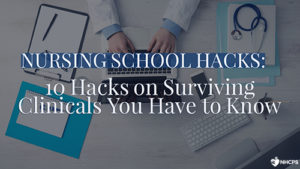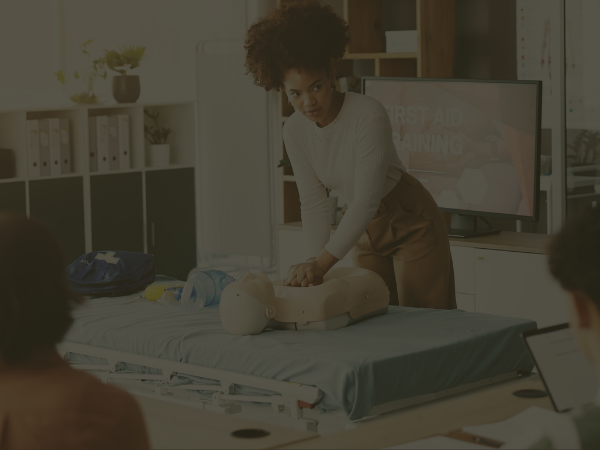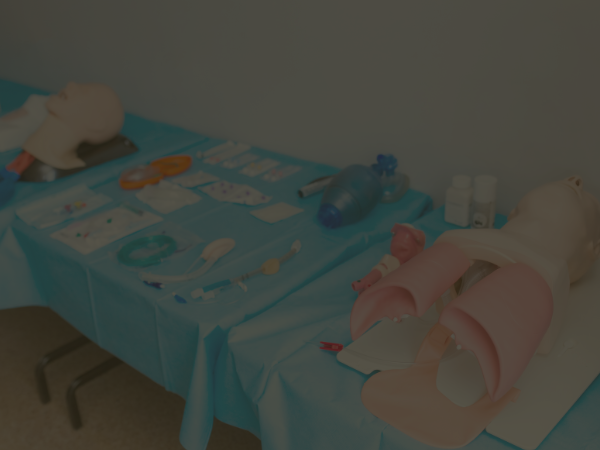CLINICALS ARE A SUCCESSION OF SLEEPLESS NIGHTS, EXAMS AND STRESS. It can be frustrating, but there are simple things you can do to make surviving nursing school clinicals easier and more enjoyable. There is a light at the end of the tunnel! Here are 10 nursing school clinical hacks to maximize your experience whether it’s your first clinicals or last!
 1. Find some friends
1. Find some friends
Embracing the buddy system is a must in nursing school clinicals. Not only will your friends provide social, emotional and mental support, but you will have the knowledge and experience of other nursing students who are in the same boat as you. Have a friend who messed up a medication pass? They will tell you about it, and you won’t make that same mistake they did!
If you have some down time, help out your fellow students. You never know what you can learn or teach. Plus, next time you need a favor you’ll probably have a set of helping hands!
time you need a favor you’ll probably have a set of helping hands!
Having a buddy will also allow you to share the load during unexpected events. You can handle the surprises of nursing clinical together and you don’t have to be alone!
You may also want to read: 10 Crucial Things Nursing School Didn’t Teach Me
2. Schedule in bathroom breaks
In nursing school clinicals, basic human functions, like going to the bathroom, are often overlooked. Why? Because there simply isn’t enough time! What can you do? Schedule in bathroom breaks when you know you’ll have a minute to go. Instead of chugging a whole bottle of water in 30 seconds, sip water throughout your shift so you don’t have a bathroom emergency.
You simply cannot focus on the task at hand with a full bladder. Don’t try to hold it either, that never works.
 3. Be task-oriented
3. Be task-oriented
Prepare yourself emotionally and physically for clinicals by setting daily goals that are achievable. Clinicals are taxing on your emotions typically because you may feel failure and stress. Go into your day with the mindset of focusing on the task at hand while keeping up the schedule. Each day will bring a different set of tasks and responsibilities embrace learning from each experience.
4. Be confident, but keep asking questions
If you’re in clinicals, you’ve come a long way and are nearly a working nurse! You are, however, still a nursing student. You’re in clinicals to not only prove yourself, but also to learn. It’s crucial to remain confident in your theories and practice, but leave a little room for things you simply cannot learn in the classroom.
Sometimes swallowing your pride and engrossing yourself in the abundance of new information is all you can do.
5. Avoid distractions
By avoid distractions we mean one thing: stay away from the drama. Hospitals are often a feeding ground for negativity and drama, but getting involved in it can have serious consequences on your performance. Personal distractions at the workplace pull you away from your goals and why you’re there in the first place.
Remind yourself this anytime you feel pulled into the distractions. Older nurses at your clinical site may not care that drama is a distractions. Be the bigger person and respond to drama like an adult!
 6. Get hands-on (be a goody two-shoes)
6. Get hands-on (be a goody two-shoes)
You have to put in the dirty work, and sometimes you have to be the first one to do it. Being the first person willing to try something new or challenging will leave a lasting impression on the staff. It’s OK if you need to ask for assistance or supervision it demonstrates passion and dedication for the field of nursing.
Be a goody-two-shoes and show up 15 minutes early to ask the night nurse about his or her patients and get the report. This way you can get your care plans and other paperwork finished before the end of the day because of the extra time allotted into the mornings.
Think about the reason you are there to get hands on experience before you have to begin practicing without supervision or schooling! Be willing to be a “yes” student and you won’t regret it.
You may also want to read: 15 Little Known Tips All New Nurses Need to Know
 7. Practice healthy habits
7. Practice healthy habits
Now’s the time to practice healthy habits if you don’t prioritize them already get enough sleep the night before clinicals, perform 10 minutes of morning stretches, drink plenty of water, and eat a balanced diet for optimal nutrition. Eating a healthy meal before your shift will make you an enthusiastic and ambitious nurse. No one likes to work with a zombie-hangry student with brain fog!
You can’t provide high-quality patient care without providing care to yourself too.
 8. Read up before rotation
8. Read up before rotation
It’s no secret that doctors and older nurses will test nursing students on their knowledge of the day’s patients and tasks. One of the most important things a nursing student can do is read up before clinical rotation. Research your patient’s diagnoses before the shift find out what the patient needs, what the diagnosis requires and prepare questions for the instructor that are specific to your research.
Be an organized, prepared student! It will leave a lasting impression with your nursing school instructor.
 9. Take notes, bring equipment, and utilize technology
9. Take notes, bring equipment, and utilize technology
You may feel a little silly, but carry around a small booklet and pen to take notes when you need to.
If you can, you could also use your handy iPhone apps to take notes or for reference. There are several free nursing student apps, such as MediCode, MedCalc, QxMD, and so much more that you can use as reference! Utilize assessment tools like stethoscopes and thermometers to make the workload more efficient and easier.
Trying to memorize all the information you are taught is nearly impossible and stressful – so don’t force yourself to try.
10. Don’t be a complainer
Don’t complain about classmates, classes or professors. They don’t care. In fact, those who hear you complain will probably avoid your negative presence (hello hack #5!) If your nursing clinical instructor seems to be clueless, don’t complain, as you will probably just become a target of administration.
Instead of complaining, you can be productive! Focus on what is going right in your nursing practice, be grateful for the resources you have, and let it go!
What was your nursing school clinical experience like? Comment below the best piece of advice you learned from clinicals!








The advice about taking care of yourself physically and mentally during clinicals is crucial.